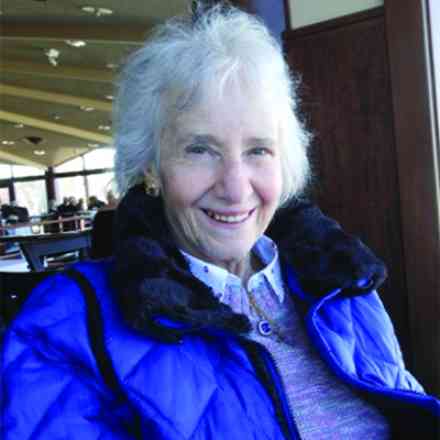In Memoriam Jake Adam York (August 10, 1972 – December 16, 2012)
“I loved the beyond. As somebody only can who is bound” —Mark Strand
I OPEN AND READ an old letter from you.
The final engine
The flagship station.
It is hard to fold.
All hinges
On the bed hanging.
Jeux d’enterdits
Forbidden games.
Against the dust, lamp—flares of second-hand lumber: celadon, sky-blue
A pair of eyes
Or two staring out: I stash the letter in a drawer.
I opened my heart, now read no more.
* * *
HEAVEN HELP me thru.
I never knew anyone like you.
I will soak love up. You do not need size to fuel your power.
I will wash away with the rain.
A smokestack
In early spring
Muscling
Gently
A riverboat floats.
A florist, I give you the color, the tune & the wind
Blowing thru: heaven help me though: I never knew anyone like you.
* * *
STORES BLINKING out like fireflies
I am old, I am ill; youth is not the holy grail.
The shuttering of another photobooth,
Flagship
Cast iron radiators coated in dust.
There’s a hole despite camphor in my best sweater.
We should have used cedar chips.
I recall vellum, those sepia days not.
(vulnerability & frailty are not prized in our society)
mine
To refine. Saturday Afternoon Taffetas.
Esultate. Till this nightfall,
Bees, petticoats rounding combs, out like fireflies.
* * *
SOW THIS SOUTHLAND
Iron at low
Steaming, water-hiss.
God tie my Nikes
in the early world I was a boy: whistling up the wind.
Threw them into the river washing the words.
I stretched, woke more fully.
Ironing the vellum documentation of two dozen tears.
Here I spoke out.
Teacher shouted,
‘Shut your pie hole.’
That was it. The South
Songstress sown by birds
washed by everglades, heartbreak-homes.
* * *
WE COULDNT BEAR IT, ALL your pain
My pain
So, we packed our sweaters in boxes.
The weight of the past fell on our shoulders:
People were lowered on stretchers.
From the missile strikes
In my dream:
In dawn I got on the bath scale.
105 lbs.
The future hinges on our stamina:
Lanky, we turn from it:
So much depends upon
How much agony we can endure.
My barriers lowered; I tour the South again.
* * *
THE WORST OF THE PAST has not settled.
With what is left of you, love me:
I cling to whispers.
Lux
Gaudemus
Eternum.
If I have not always observed decorum,
I have lived with passion.
If I have become a wallflower, it is one pulsing, the darkest rose:
Blood, shot upon the wall.
When the damn burst: my childhood walking
turned into an elder,
thin but not so thin it cannot hold a blossom.
Goodbye to love would be a cruel calm:
Requiem. Not in pacem.
* * *
I HAVE COME TO THE LAND OF “Whatever”
The shrug
Where I expected a vibrant, pulsing dark in the rain forest.
Maybe I’ve yet to find it:
Turning over shawls
Looking under tables
I search for it every day.
I was a Jew in the deep South. O poet:
The more I begin to lose it:
What is “it”
a struggle to sing
I raised my chin,
wanted a little more sugar.
As I did in the South.
Where an Elizabethan tongue, it is said, is still spoken:
May be the one to imitate the young one who,
at fifteen,
had the chops
but weighed scarcely over one hundred pounds.
* * *
HOW can I tell you are walking on unsafe water?
Like “I pledge allegiance…”
In fear of drowning
When your clear-eyed gaze expressed to me a blaze.
Again, and again.
Air pale as a lampshade in the South.
But there was honey-suckle then.
A poet at the other end of the continent
But in a different land
May read my desperation: it’s written.
Into the vellum curled lampshades
The magnolia burns on words.
The off-notes struck on the piano.
Of my survival which has survived itself:
and hangs, a plum upon a branch contorted as a polio child’s spine.
* * *
WHEN THE BOOKMOBILE came by
In the hospital, my toes were still curled in Alabama dirt.
I was twelve. Southlands were a memory. Honeyed speech. I was a child more mortal than most. Alabaman.
It was a rattling cart.
Wooden
Or maybe some metal?
Its few books had frayed, fade—I cannot single out one week in hell, like plucking a petal
(A child whose reality kept changing, mirror-swirling)
Bindings
I related to a bowl cut.
A skeleton of a child who ran. Outran the words on the page with a tiny flame burned in.
* * *
WHY ARE you not transparent with me?
This is how wars begin
Starting with small strife.
Rife
In beautiful
Southlands:
The loss of the tall-limbed him
The hymn:
Teacher, protesting cruelty.
Protestant in that one sense
So, the fear of cruelty,
setting the home on fire:
heartbreak, tall boy.
Editor’s note: This is the first publication of “Sowing Southland.” Lynn Strongin provided the following translations for selected Latin words in this poem—Hodie (this very day); Lux (light); Gaudemus (let us make merry); Ad eternum (till eternity). As an added note, Strongin repeatedly emphasized the words decorum and stoicism while we discussed “Sowing Southland.” I believe Jake Adam York would have loved this poem.

